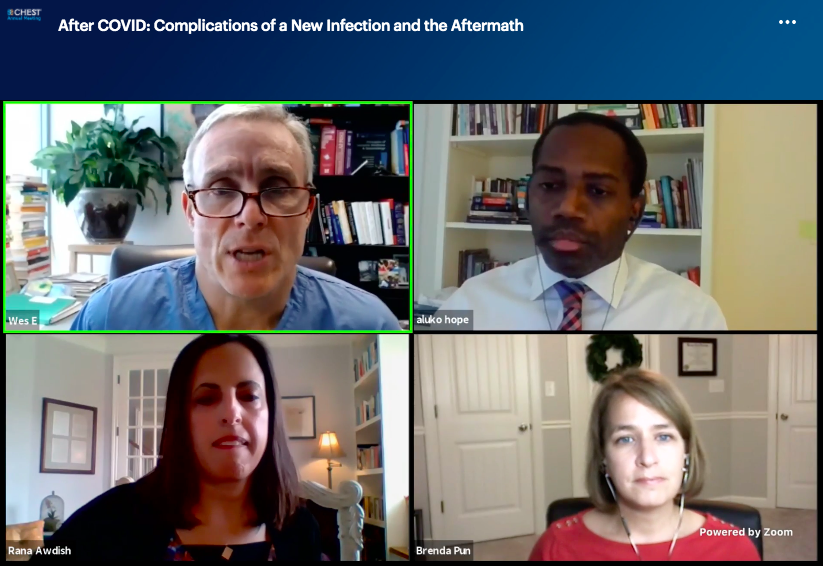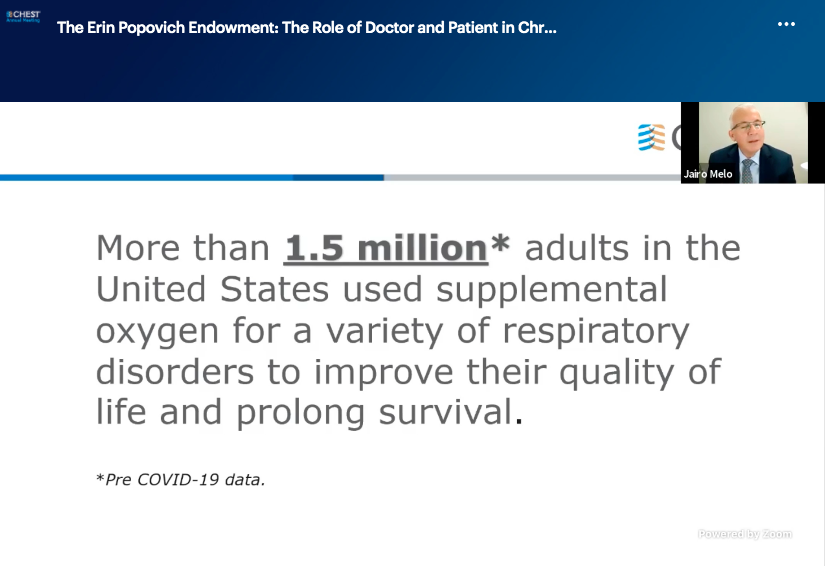
Grace Under Pressure: Addressing Conflict in Provisioning Care! With @navithadev, @DrMcCamey and @NnekaPhD! #CHEST2020
Case 1: Patient with non-survivable brain injury. Family wants "everything done". #CHEST2020
Dr. Groninger: First step might be to explore what the family means by "everything". The problem with "everything" is the focus on process rather than goals. #CHEST2020 

@BenMosesVA: Avoiding being too predictive is helpful. People want us to tell them what is going to happen (but our prognostic skills are middling at best). But we can talk about what has happened to others in the past. #CHEST2020
@NnekaPhD: It is our duty to find out what the family's values are, and help them develop goals from these. Takes time but our duty to support families. #CHEST2020
@DrMcCamey: Disconnect between teams is harmful to families. Need to be on the same page. The Nurse Practitioner and bedside Nurse are frequently the arbiters who need to provide consistency. #CHEST2020
@cksederstrom: Families often have issues with brain injuries since it is not as visible as a broken leg or arm. Frequently families have gaps in their understanding that we don't appreciate. #CHEST2020
@LSJohnsonMD: Doctors are not at the bedside for 8-12 hours at a stretch. How can we support nurses at the bedside with unrealistic expectations? #CHEST2020
@navithadev: Are open or closed units better for communication? #CHEST2020
Questionfor Dr. Norine McGrath. Is there a role for EM clinicians in end-of-life care? #CHEST2020
Dr. McGrath: Absolutely. Our role is to open the door to #palliativecare and to set the stage for conversations that will happen later. What is never helpful? High-fiving a "good save" #CHEST2020
@cksederstrom: Need to be prepared for the question about "should we do something". Involving early palliative care is important. #CHEST2020
@NnekaPhD: We should not be offering therapies that will not benefit a patient. #CHEST2020
@LSJohnsonMD: Important to make the distinction about doing things "for the patient'' vs doing things "to the patient". #CHESTPalCare #CHEST2020
@NnekaPhD: Need to be clear what we will tolerate and what we will not tolerate at our institution. Most places are proud to work at a place that stands up to values. #CHEST2020
Dr. McGrath: Early in my career I tolerated this level of misogyny. But now, I am very aware of how patients treat my staff and hold them to standard of respect and acting like adults. #CHEST2020
@DrMcCamey: Opportunity to level set with the patient, but important to be united, and get support from your institution for zero tolerance to racism and misogyny. #CHEST2020.
This was a great session! Thank you @navithadev for moderating and @LSJohnsonMDfor chairing! Hope I didn’t mess things up too much with my question! I need to learn to think before I type! #CHEST2020
• • •
Missing some Tweet in this thread? You can try to
force a refresh


















